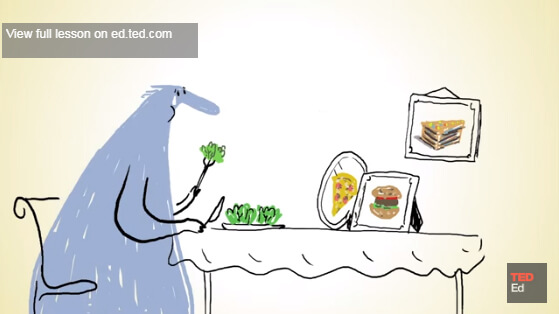One popular diet that continues to make headlines is the Mediterranean diet which emphasizes fruits, vegetables, nuts, legumes and whole grains. The latest study reveals that older women who adhere to this eating pattern have a lower risk of hip fractures. Past studies have shown that the Mediterranean diet has been show to reduce the risk of heart attacks and strokes.
Nutritionists and scientists tout the the Mediterranean diet because it focuses on a pattern of eating a balanced diet of natural, whole foods — but it can easily get lost in the shuffle because every time you turn around, someone is selling a quick new way to lose weight. Fad diets and quick weight loss diets are in no short supply — yet some are downright dangerous.
How do we distinguish what’s actually healthy from what advertisers just want us to believe is good for us? Mia Nacamulli gives the facts on fad diets in this terrific short video, illustrated by Avi Ofer.
See the video’s home page, which includes a quiz and an article with additional resources. Two of the resources that the TED video points to:
- Ever heard of the “chew and spit diet or the vinegar diet? Or the astonishingly dangerous tapeworm diet? Britain’s BBC featured a great article on history’s weirdest fad diets.
- An article on 5 ways to spot a fad diet offers helpful tips about common empty promises that are characteristic of “quick fix” diets.
Quite simply, the best and most lasting way to lose weight requires eating less and exercising more – a simple formula that is easier said than done. The CDC offers tools and plans for healthy weight loss. If you are a Member of TotalCare Wellness, you have access to certified coaches who can help you to build a healthy weight loss plan that’s right for your goals and your lifestyle.

